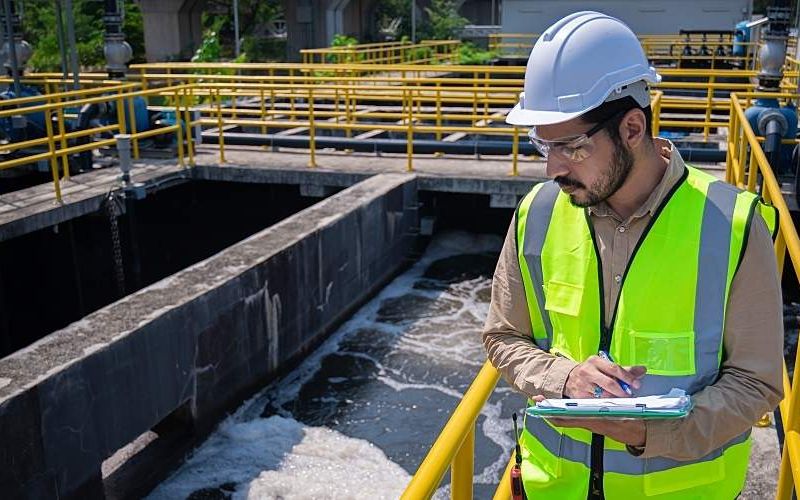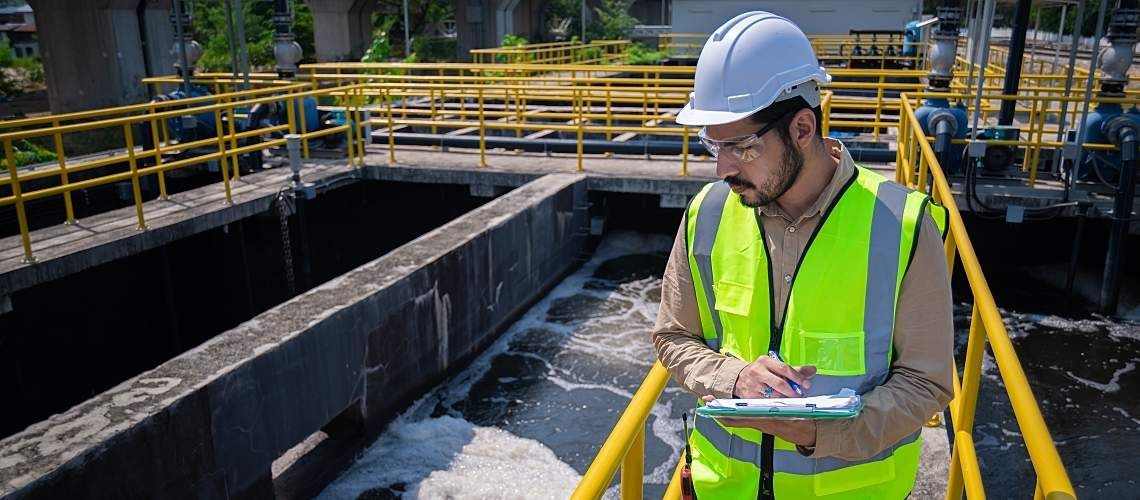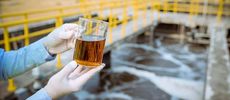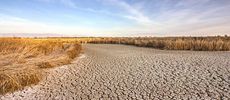Wastewater Surveillance Is an Ethical Issue


Over the course of the COVID-19 pandemic, wastewater surveillance has become a valuable tool to detect and track infectious disease in the United States—and not just the SARS-CoV-2 virus. Wastewater monitoring is expanding to include viruses for polio and monkeypox and possibly dangerous substances like opioids. Public health officials can now identify outbreaks and put precautions in place using real-time data on infection and incidence. Even in communities where incomes and access to healthcare and testing are low, surveillance provides a way to improve health in an effective and equitable way.
Surveillance May Be Too Personal
As sampling and lab testing increase, so do concerns that surveillance may become too personal, according to an article in Fortune Well. Although monitoring often takes place in municipalities with 50,000+ residents, it's also been used for dormitories, long-term care facilities, and navy vessels with fewer than 1,000 people, according to the U.S. Government Accountability Office (GAO). That makes maintaining anonymity far more difficult.
In a recent article, Nature reported on University of Wisconsin-Madison scientists who were tracking a heavily mutated variant of SARS-CoV-2. Ultimately the researchers traced the variant to a small office of 30 people. Of the 60% who agreed to testing, however, none had the variant.
Still, the scientists' ability to narrow down the source of the variant to a small population raises questions about an individual's right to privacy and control over health information—especially given that wastewater testing normally occurs without knowledge or consent. The debate centers on personal rights versus the public good.
The Reasonable Expectation of Privacy
Wastewater contains both genetic data on pathogens—which lets public health officials identify them—and on humans as well. The concern is that this information could be misused.
Guidelines for ethical wastewater testing were put forth in 2015 by the European Monitoring Centre for Drugs and Drug Addiction. Their recommended best practices include making data anonymous, perhaps by mixing samples from multiple sites, so monitoring does not point to any one community.
But the issue is complex enough that it's made its way into legal journals. In a June 2020 article in the Journal of Law and the Biosciences, the authors note that the U.S. Supreme Court has "recognized that the collection and analysis of biological samples may intrude upon reasonable expectations of privacy...".
As the data from wastewater sampling becomes more targeted and potentially less private, Fourth Amendment protections against unlawful search and seizure come into play. For now, as long as the collection of samples through wastewater monitoring targets populations—not individuals—programs are likely constitutional. Even so, the GAO noted that communities could be stigmatized if surveillance data on the existence of infectious disease or illicit drugs among the population is made public.
Acting for the Public Good
Public health officials maintain that threats to public health call for allowing the greatest good for the greatest number. With more rapid disease detection, it's critical to balance the control over health information.
As of February 2022, health departments with jurisdictions that total approximately 16% of the U.S. population conduct wastewater monitoring with funding support from the Centers for Disease Control and Prevention. The information gained helps to determine when to implement—and relax—requirements and recommendations for social distancing, mask wearing, testing, and quarantining. Some of these measures are a form of civil confinement, however, and must meet strict standards of scrutiny. For example, governments generally approve quarantine of specific individuals, but mass quarantine would need to meet a higher standard.
Courts are likely to uphold the legality of surveillance for particular diseases under the "special needs" doctrine. The doctrine gives courts the authority to support public health programs that reasonably balance individual privacy rights and legitimate government interests in preventing disease.
If testing detects a virus near a particular workplace or neighborhood, for example, that might support the need for screening programs in the area. Voluntary programs would not raise legal concerns because public health powers include the authority to conduct testing and screening. But states also have a right to require testing or treatment for a dangerous infectious disease—and individuals who refuse could be subject to restrictions such as quarantine or monetary penalties.
Moving Toward Coordination and Standardization
The unsettled status of wastewater testing in the U.S. also contributes to the concerns over private and public rights. The country does not yet have a standard approach to sample collection, analysis, and data sharing across sites, according to the GAO. That makes it difficult to compare sites and develop consistent practices and interventions.
As the scientific understanding improves, however, the hope is that public health officials will be able to gather useful data while taking into account legal and ethical considerations. With an approach sensitive to the need for personal privacy, health departments gain a valuable system for early warning to combat the spread of disease and improve community health.






